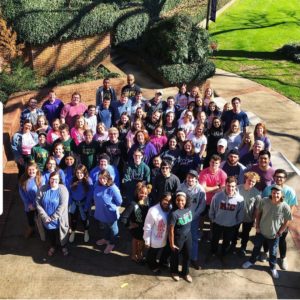by Catherine Arjet
opinions editor
On Monday, February 29, the Lambda Iota chapter of Alpha Kappa Alpha announced its newest members in a fun and music-filled event celebrating the sisterhood the women joined. The six young women welcomed into the sorority walked through the bowl while alumnae sang about the sorority. The girls then announced their names, classifications, majors, and love for Alpha Kappa Alpha. They next performed a series of songs and dances, almost all with references to the sorority and its greatness. This event was completely different than the Panhellenic bid day, where new members run to their respective sorority houses.
Although AKA has been on campus before, it was banned from Millsaps in 2011 due to an incident involving hazing. This ban lasted until spring of 2016, so the sorority is now back and hoping to do great things. Many students have expressed disappointment and frustration about Millsaps’ lack of a historically African American sorority, especially when we have such an active Greek life and so many historically white sororities (you can read an old P&W article discussing this issue here). Many hope that AKA’s return to campus will begin to fix this issue.
Lori Genous, chapter sponsor of the LI chapter, said via email correspondence that her biggest concern right now is sustainability. “The chapter must continue to grow by initiating members in perpetuity,” she said. “This is of particular importance because of the size of Millsaps.” Genous discussed her vision for the LI chapter, adding, “It is also my hope that LI continues to uphold the sorority’s reputation and legacy of excellence as the premier organization established by African-American women. With the caliber of young ladies who were and will be initiated into LI, I envision the chapter’s reach to be far and wide, striving to be ‘Supreme in Service to All Mankind’ (our creed), ‘Across the Street and Around the Globe’!”
Genous herself is an alumna of the sorority and can speak first hand to its benefits. “When I was initiated in college, I grew closer to women with whom I still communicate regularly today. That was a little over two decades ago!” Genous said. “I likely would have connected with some of these individuals anyway; however, the collegiate experience of bonding with them through AKA was priceless. It provided an environment that better integrated me into the institutional culture and allowed me to flourish both personally and professionally through leadership experience.”

